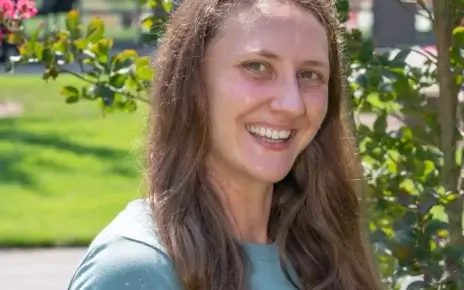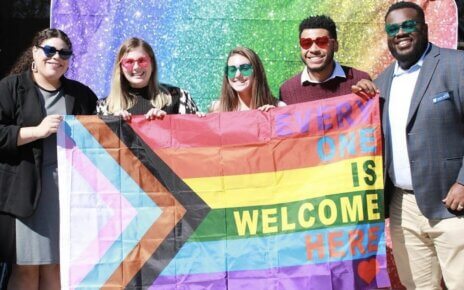For those who are intrigued about taking out of the ordinary courses, Monmouth offers many gratifying, semester-long classes that are sure to keep students engaged.
These include courses where students can get an Open Water Scuba Certification (BY-290); Advanced Topics in Race and Racism (EDC-520), where students learn through discussions of racism and race; Spectp: Gangs and Crime (HLS-398), where students can study gangs and organized crime; and Superhero Literature (EN-222), where students can study superheroes in literary epics such as The Iliad.
Tina Paone, Ph.D., Professor of Educational Counseling, teaches Advanced Topics in Race and Racism (EDC-520). This course is offered in both the Fall and Spring semesters, and caps at 15 students. “I’ve been teaching this course since its conception nearly 15 years ago. I love teaching this course because I get the opportunity to teach about the topic of antiracism and teach out future school counselors and student affairs professionals how to not only recognize racism, but how to advocate with their future students and how to create change to racist policies and rules within their future institutions,” Paone said.
As racism continues to be a pressing issue, this course may help those in a school setting identify instances of racism and how to address it.
Michael Rodriguez, a graduate assistant in the Educational Counseling and Leadership program, commented on the course, “Participating in the class has been extremely insightful. It has changed my understanding of how pervasive racism is embedded in our society and how systemic policies and practices were designed and implemented for the benefit of one race at the expense of other marginalized communities.”
Christopher Wojcik, Adjunct Professor in the School of Science, teaches the Open Water Scuba Certification course (BY-290) in the Fall semester. He said, “I’m a marine scientist and have been a diving instructor for 35 years. The students who take the dive class are marine science students. What’s good about my course is that I can teach scuba from a marine science perspective and can prep them for their future careers.”
Wojcik continued, “This can also fulfil a two-credit biology requirement for marine biology students and the average amount of students that take my class is ten.”
Emily Gould, a former student of Wojcik who studies marine and environmental biology and policy, said, “Professor Wojcik’s class was certainly my most exciting courses and I always looked forward to going.”
Taking unique courses can benefit future careers. Employers look for well-rounded candidates, so taking such courses helps you stand out. Monmouth offers these courses to peak student interest, but also considers how they could be implemented into a student’s existing curriculum.
Gould continued, “The coolest thing about the course was that by the end, I became a PADI (Professional Association of Diving Instructors) certified scuba diver. Becoming scuba certified will help me in my career path.”
By taking free electives outside their major, students may see a reduction of stress concerning their major requirements. Due to such high learning demands and expectations, having this academic digression lifts pressure off a student’s shoulders. Plus, having connections with students that study subjects very different than yours is important for branching out and expanding your social and academic horizons.
Having these unique courses is also great for those with an undecided major, or for someone who really is not sure what they want to pursue in life. With taking such a variety of courses, students may awaken their true passions.



